In these recent novels and story collections, authors use the conventions of genre as a launchpad to explore unsettling and all-too-real truths.
Among the titles reviewed by PW are a speculative novel with a dystopian vision of an internment camp for Vietnamese Americans, a story about a strange method of population control, and climate fiction that toys with time travel and religious oppression. Elsewhere on our list, two collections explore trans lives with a fluid mix of realism and fantasy, a southern gothic novel morphs into a horror tale of shapeshifting swamp creatures, and more.
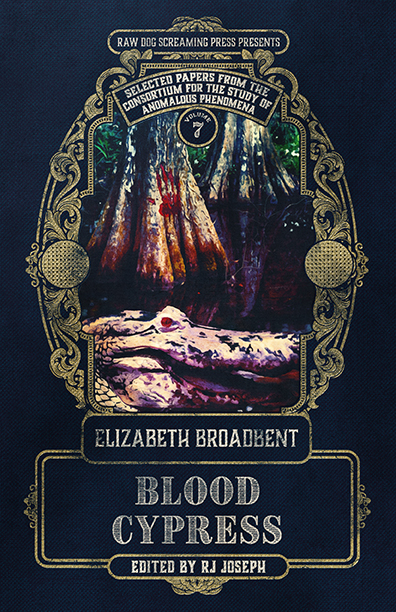
Elizabeth Broadbent. Raw Dog Screaming, $14.95 trade paper (100p) ISBN 978-1-947879-88-1
Faulknerian unease oozes from this earthy Southern gothic by Broadbent (
Ink Vine). Stifled by the nearby swamp’s “scum-sweet” air and in the shadow of its “old as bones” cypress, the Carson family house is a broken-shuttered wreck. Mama, a former county beauty queen and now widow, struggles to provide for her four children. Twins Quentin and Lila, 18, are at odds with their violent older brother, Davis. who despises them and the autistic youngest, Beau. When Mama goes to the store and leaves the others to look after Beau, the nonspeaking boy wonders off into the swamp and disappears. The subsequent search brings a posse of deputy sheriffs to the Carsons’ kitchen where they harass beautiful Lila. When Quentin, who has always been her one ally, tries to defend her, he’s beaten up and handcuffed. After he’s let go, he attempts to rape her, sending Lila fleeing into the swamp. There, she meets an albino alligator and a black panther, embodiments of ancient good and evil. The panther leads her to her brother—but he is transformed beyond her wildest imagining. Broadbent brings this warped novella to a close with a series of stunning final twists—including a devastating reveal about who is narrating the story. This is coming-of-age fiction at its creepiest.
(Apr.) 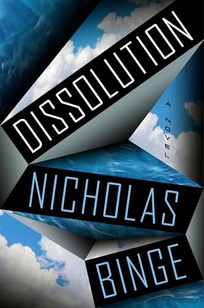
Nicholas Binge. Riverhead, $30 (384p) ISBN 978-0-593-85216-3
Binge (
Ascension) combines a suspenseful plot with an inventive structure in this unnerving sci-fi thriller told mainly through transcripts of a strange interrogation. In 2021, octogenarian Margaret Webb is questioned by Hassan, a stranger, who insists that she try to remember the events that brought her to his interrogation room before “dissolution” happens in 11 hours. This setup—which is as disorienting for the reader as it is for Margaret—makes turning pages to find out what is going on compulsive. Hassan tells Margaret that her husband, Stanley, a resident at an assisted-living facility, is in danger due to his involvement in a research study, and that her memories are vital to his safety. Flashbacks to the 1950s fill in some of the blanks, starting with Stanley’s time as a protégé of Professor Waldman, who believes that “human memory possesses unlimited depths.” Binge nimbly toggles between present and past, keeping his foot on the gas as he gradually reveals what’s preceded Margaret’s interrogation. With plausible science and multifaceted characters, this high-octane outing excites.
(Mar.) 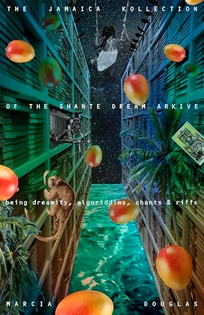
Marcia Douglas. New Directions, $17.95 trade paper (224p) ISBN 978-0-8112-3117-6
The adventurous and immersive latest from Douglas (
The Marvellous Equations of the Dread) continues the author’s fusion of poetry and prose with a nonlinear tale combining an escape from slavery in 18th-century Jamaica and immigrant life in 2010s America. In 1788, Abba escapes a Jamaican plantation by taking on the identity of a newly freed woman who died while giving birth. With the dead woman’s newborn son, Quaco, in tow, she attempts to outrun overseers in hot pursuit. An intersecting narrative follows a 20-something undocumented Jamaican seamstress known only as 20A, who’s visited by ICE officers at her job in New Jersey, prompting her to flee on a Greyhound bus to the Grand Canyon. Though 20A imagines the canyon as a place “big enough to hold everything,” she contemplates returning to Jamaica, and when she drifts off to sleep, she dreams of Abba, who loses Quaco during her struggle with an overseer. The baby’s cries reverberate across the ages, and he slips through time, appearing in Jamaica at various points spanning 300 years. “Time and space are twin,” Douglas writes, and as she develops this idea in passages that alternate from prose to verse, the novel takes on a trancelike quality. The author’s originality is on full display in this challenging and rewarding work.
(Apr.) 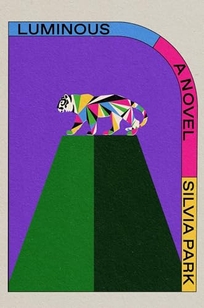
Silvia Park. Simon & Schuster, $29.99 (400p) ISBN 978-1-66802-166-8
Sinister charm exudes from this android-filled mystery by debut author Park. In a near-future, unified Korea, Jun works as a detective in Seoul’s robot crimes unit. He’s searching for a missing AI when he’s reunited with his sister, Morgan, a hotshot “personality programmer” for the robot manufacturer Imagine Friends. The two became estranged after high school when Jun enlisted in the military and was maimed in an accident, requiring much of his body to be replaced by bionic implants. Uneasy with the new Jun, Morgan tries to hide from him that she has a live-in android lover and is modeling Imagine Friends’s next big release after her and Jun’s missing older brother, Yoyo, a humanoid robot. Meanwhile, the broken-down original Yoyo hides out in a junkyard where he befriends a pack of wily schoolchildren, among them a North Korean refugee. Told with mordant wit (Morgan “had lived under the belief that she could be preemptively forgiven for the uniquely monstrous selfishness that preceded genius. But only if she had a cock”), the narrative takes a wide-angled approach to the theme of human-machine convergence. With Ishiguro-esque precision, Park dissects sentience and reality, as well as love and death. This lustrous, challenging work will reward readers who stick with it.
(Mar.) 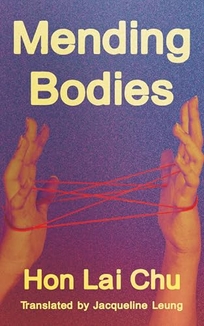
Hon Lai Chu, trans. from the Chinese by Jacqueline Leung. Two Lines, $18 trade paper (240p) ISBN 978-1-949641-76-9
Hon (
The Kite Family) offers an unsettling fable about an extreme form of cohabitation. The unnamed narrator, an adrift student with worsening insomnia, is working on her dissertation about conjoined humans throughout history. She lives in a thinly veiled Hong Kong where the Conjoinment Act has incentivized citizens to surgically meld with another person. The act was driven by economic motivations (it’s created a bustling new market for conjoined-friendly products) and political ones, as it serves to “make citizens forget about their long campaign for the city’s independence.” When the narrator’s dissertation adviser encourages her to familiarize herself with her subjects’ experiences, she enlists in a body-matching program and eventually commits to a conjoinment surgery. The account of the narrator’s growing self-estrangement is interspersed with excerpts from her research paper, which probes the “simultaneous coveting and fear of interdependence with another human body.” The novel’s broad exploration of its many themes—including bodily autonomy and privacy—can give the narrative a diffuse and portentous quality. Still, Hon’s turns of phrase are consistently arresting (“The self proliferates as incessantly as mold”). This intelligent speculative work is eerily transfixing.
(Apr.) 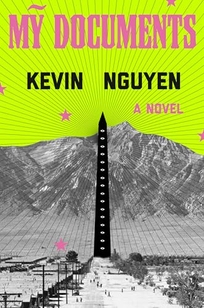
Kevin Nguyen. One World, $27 (352p) ISBN 978-0-593-73168-0
Nguyen (
New Waves) draws on the legacy of the U.S. government’s internment of Japanese Americans during WWII for this intelligent and chilling novel. After a series of explosions kills scores of people at six major airports in a coordinated terror attack, the perpetrators are revealed to have Vietnamese names. The government launches an internment program for Vietnamese people in the U.S., and the story follows the Nguyen family as they reckon with the upheaval to their lives. Ursula, an up-and-coming reporter, and Alvin, an intern at Google, receive work exemptions that save them from being sent to the camps. Their younger half-sister, Jen, declines her student exemption and joins her mother and her 15-year-old brother, Duncan, at Camp Tacoma (the four half-siblings’ Vietnamese father abandoned them years earlier). While at the camp, Jen compiles a pamphlet about abuses there, which she smuggles to the outside via an underground network. The pamphlet reaches Ursula, whose star rises after she writes articles based on it. Nguyen delivers deep character work, especially with Jen, who grapples with the relief she feels after letting go of the pressure she’d internalized to succeed at school; and Ursula, whose Faustian bargain has tragic repercussions. This poignant narrative is an emotional roller coaster.
Agent: Sarah Bowlin, Aevitas Creative Management. (Apr.) 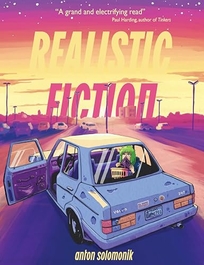
Anton Solomonik. LittlePuss, $19.95 trade paper (244p) ISBN 978-1-7367168-8-5
Solomonik probes trans identity in this provocative debut collection. The narrator of the title story, a college graduate who “always hated” the “realistic” and plotless fiction he was assigned in school, rediscovers his affinity for the crime novels preferred by his dad, an epiphany that comes to him while on his first date with a woman after transitioning. In “August, 1962,” an homage to the TV show
Quantum Leap, Sam Beckett uses his time machine to inhabit the body of a Kennedy White House intern. While having sex with Kennedy and an aide in the woman’s body, he finds an erotic thrill in being used for pleasure by a president who “vaingloriously sought to reassure the nation.” In “The Hot Tub Story,” a writer, desperate for social connection, is excited by an invitation to participate in an LGBTQ+ reading series. They’re so focused on using the occasion to get back at a girl that blocked them online, though, that they don’t give themself enough time to write. Solomonik slips in plentiful philosophical musings and highbrow wit without taking himself too seriously. Fans of weird and punchy short fiction will enjoy this.
(Apr.)

Joe Mungo Reed. Norton, $29.99 (272p) ISBN 978-1-324-07937-8
British writer Reed (
Hammer) delivers a satisfying work of climate fiction involving interplanetary time travel. On the present-day Scottish coast, Hannah encounters a nameless young man who claims to have arrived from a Martian colony, which will be settled decades in the future. The man aims to teach Hannah everything he knows about nuclear fusion, hoping to save Earth from a looming climate crisis that will make the planet uninhabitable. From there, the story unfolds from the viewpoints of Hannah’s progeny: her politician son, Andrew, who has designs on becoming Scotland’s First Minister; her granddaughter Kenzie, a lesbian and the eventual builder of the first working fusion reactor (based on knowledge passed down from Hannah); and her great-grandson Roban, who has suffered the loss of his mentor, a mining spaceship commander named Vishay. Reed puts his science fiction concepts in the service of intriguing philosophical questions (“What if time doesn’t move so cleanly forward, but jumps and jerks, blooms and shudders?”), and the conclusion packs an emotional wallop. Readers of slipstream fiction like
Cloud Atlas will find a great deal to enjoy here.
(Apr.) 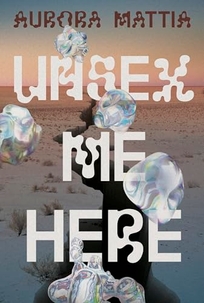
Aurora Mattia. Nightboat, $18.95 trade paper (272p) ISBN 978-1-64362-270-5
Mattia (
The Fifth Wound) dazzles with this genre-spanning collection of stories about queer and trans characters navigating desire and love. Raphael, the protagonist of “Valentine’s Day,” submits to a series of hookups on Grindr while pining for the man he loves. In “Wild and Blue,” Peach and Sandy go on the run after stealing an experimental drug from a pharmaceutical company. As the drug strips Sandy of his memories, Peach, who is trans, worries her lover’s altered mind will dismantle his ability to see her as a woman. Mattia draws on Greek and Roman mythology with “Celebrity Skin,” about two trans women who become lovers during their quest to reach a cult that performs the mystical and gender-affirming Aphroditos ritual. In “Cradle Me, Lucifer,” the narrator details her bond with her pet python, Milky, who was given to her by an ex. As she chronicles her beautiful and heartbreaking relationship with the snake, her own life and those of the people around her come into focus. Ripe with poetic metaphor, Mattia’s narratives blend reality, magical realism, and autofiction to create a fever dream of yearning. Readers will be enthralled.
(Apr.) 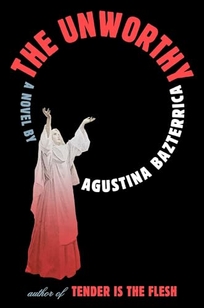
Agustina Bazterrica, trans. from the Spanish by Sarah Moses. Scribner, $18.99 trade paper (192p) ISBN 978-1-66805-188-7
This heartrending postapocalyptic tale from Bazterrica (
Tender Is the Flesh) examines religious devotion and the search for tenderness in a world torn apart by climate collapse. As a member of the Sacred Sisterhood, a monastic order cloistered within the decaying walls of what used to be a church, the nameless heroine keeps a secret diary detailing the horrors she and the other members of the “unworthy” caste suffer at the hands of the Superior Sister, a whip-wielding despot who stands in for a hidden god. When a nearly starved woman named Lucía finds her way to the convent, the protagonist’s recollections of life before the Sacred Sisterhood become sharper, and she rediscovers the ability to feel emotions other than terror and resignation. But the bond between her and Lucía is tested as the Superior Sister brings her terrible ministrations to bear, and each must hold tight to the other if they hope to find something worth surviving for. Moses’s translation is marvelous, capturing the lush lyricism with which Bazterrica describes the most harrowing extremes of human experience. Calling to mind Cormac McCarthy and Chelsea G. Summers, this is as beautiful as it is brutal.
Agent: Barbara Graham, Schavelzon Graham Agencia. (Mar.) 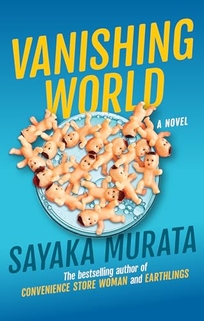
Sayaka Murata, trans. from the Japanese by Ginny Tapley Takemori. Grove, $28 (240p) ISBN 978-0-8021-6466-7
Murata (
Convenience Store Woman) delivers an intimate and disturbing speculative tale in which social isolation and population control are taken to extremes. Amane Sakaguchi lives in an alternate Japan where artificial insemination developed rapidly during WWII and became the de facto method of procreation. As a girl, Amane embraces this new way of life despite her mother’s resistance to it (she used the “primitive copulation” method to give birth to Amane). In adulthood, Amane struggles with sexual lust but tries to conform by attending a series of matchmaking parties. She strikes out until at age 31 she meets and marries Saku, with whom she decides to have a child via artificial insemination at 35. Her mother casts doubt on their happiness (“A marriage that goes too smoothly gives me the creeps”), however, and as Amane and Saku each date other people (sexless polyamory is another societal norm), they grapple with the limits placed on their respective desires. Saku eventually convinces her to move to Experiment City in Chiba, where children are raised communally and each citizen is called Mother. Amane senses that something is deeply wrong there, and her quest to rid herself of all her bodily urges propels the narrative to an explosive and haunting conclusion. Murata’s blunt and bizarre humor is on full display (“Amane, thanks for eating me,” a boyfriend tells her after she swallows his semen), as is her incisive commentary on contemporary Japan. This nightmarish fable is impossible to shake.
(Apr.) 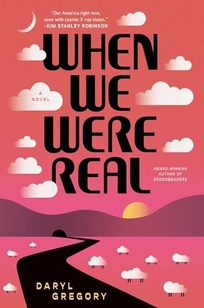
Daryl Gregory. Saga, $29.99 (464p) ISBN 978-1-66806-004-9
Gregory (
Spoonbenders) riffs on The Canterbury Tales with this deeply philosophical road trip novel about a disparate group of pilgrims on a cross-country bus tour of surreal American landmarks. Seven years after the world was revealed to be merely a computer simulation, the North American Impossibilities Tour takes the curious to witness strange sites caused by glitches in the code, including a frozen tornado, a tunnel that runs outside of time, and a rectangular canyon where gravity reorients. Among the participants are JP, also referred to as “The Engineer,” who’s chosen to stop treatments for his brain tumor, and his buddy, Dulin, “The Comic Book Writer,” who hopes the tour will reignite JP’s will to live—and also provide him with an opportunity to hook up with “The Nurse,” Beth-Anne. Meanwhile, “The Nuns” Janet and Patrice struggle to reconcile their belief in God with the knowledge that their world is only zeroes and ones. Gregory bats the existential issues back and forth, offering no easy answers, and, through other members of the eclectic cast, mixes in sharp commentary on internet influencers and armed conspiracy theorists. The result is a heady and entertaining treat.
Agent: Seth Fishman, Gernert Co. (Apr.)









